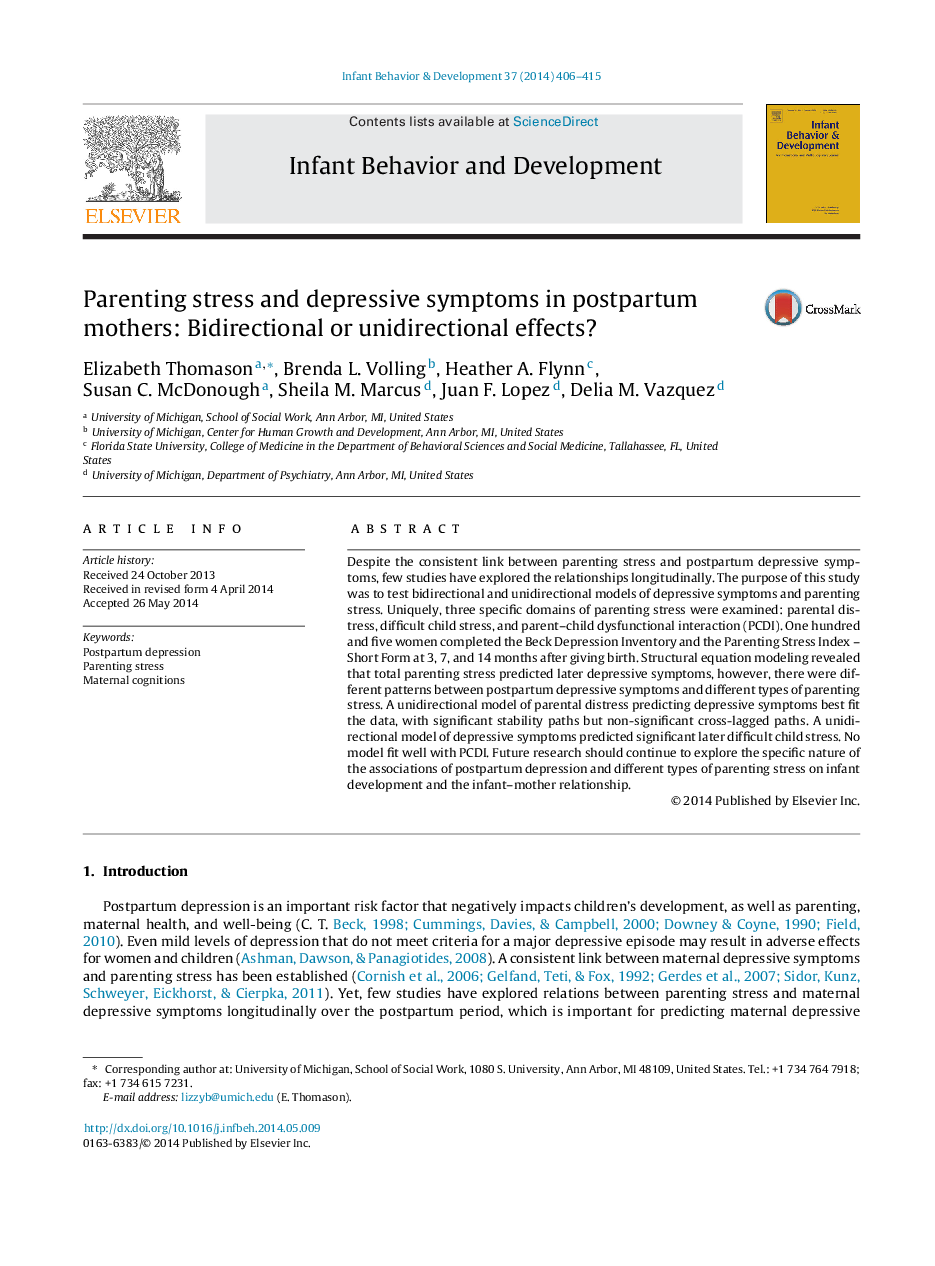| Article ID | Journal | Published Year | Pages | File Type |
|---|---|---|---|---|
| 10452662 | Infant Behavior and Development | 2014 | 10 Pages |
Abstract
Despite the consistent link between parenting stress and postpartum depressive symptoms, few studies have explored the relationships longitudinally. The purpose of this study was to test bidirectional and unidirectional models of depressive symptoms and parenting stress. Uniquely, three specific domains of parenting stress were examined: parental distress, difficult child stress, and parent-child dysfunctional interaction (PCDI). One hundred and five women completed the Beck Depression Inventory and the Parenting Stress Index - Short Form at 3, 7, and 14 months after giving birth. Structural equation modeling revealed that total parenting stress predicted later depressive symptoms, however, there were different patterns between postpartum depressive symptoms and different types of parenting stress. A unidirectional model of parental distress predicting depressive symptoms best fit the data, with significant stability paths but non-significant cross-lagged paths. A unidirectional model of depressive symptoms predicted significant later difficult child stress. No model fit well with PCDI. Future research should continue to explore the specific nature of the associations of postpartum depression and different types of parenting stress on infant development and the infant-mother relationship.
Related Topics
Life Sciences
Neuroscience
Behavioral Neuroscience
Authors
Elizabeth Thomason, Brenda L. Volling, Heather A. Flynn, Susan C. McDonough, Sheila M. Marcus, Juan F. Lopez, Delia M. Vazquez,
